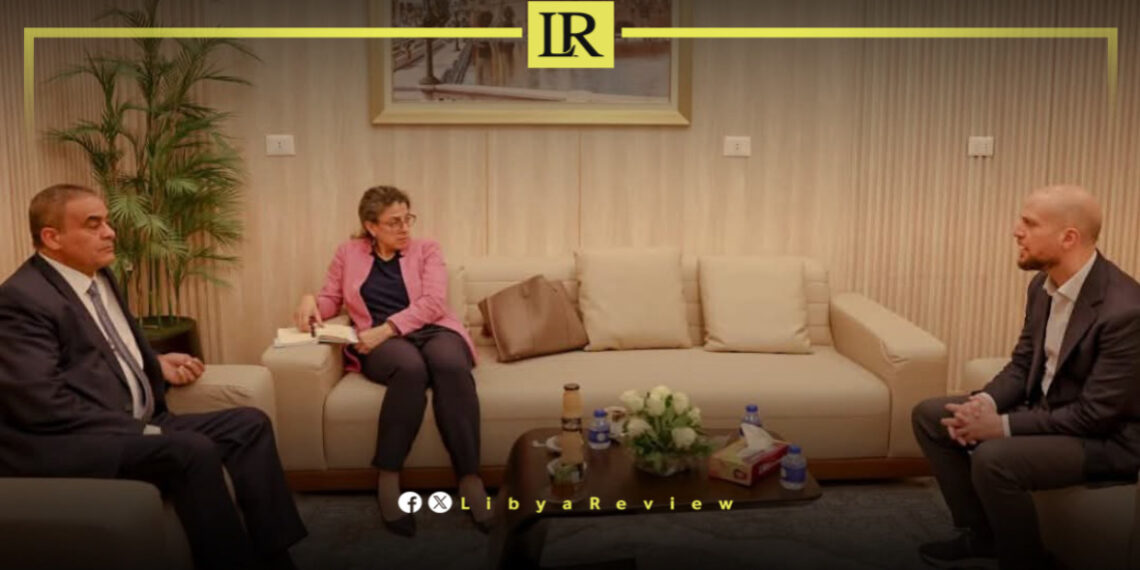On Tuesday, the United Nations Support Mission to Libya (UNSMIL) expressed deep concern over Libya’s deteriorating financial and economic situation, urging the country’s political leaders to reach a broad agreement on a unified national budget and to accelerate long-overdue reforms aimed at stabilizing the economy and improving governance.
The remarks came during a meeting in Tripoli between Stephanie Khoury, Deputy Special Representative of the UN Secretary-General for Political Affairs, and senior officials in the Government of National Unity, including Mohamed Al-Shahoubi, Minister of Transportation and financial advisor to the Prime Minister, and Walid Al-Lafi, Minister of State for Communication and Political Affairs.
In a statement, Khoury stressed the urgent need for consensus on a unified budget that is based on realistic revenue projections, meets the basic needs of the Libyan people, and is rooted in broad political agreement.
She also underlined the critical importance of strengthening financial transparency, enhancing public accountability, and adopting economic policies that lay the foundation for a sustainable and inclusive recovery.
The meeting touched on several economic concerns, including public spending mechanisms, fiscal transparency, and the responsible use of state resources.
Both the UN and the Libyan officials agreed on the need to improve the efficiency of government expenditures, particularly in light of growing public dissatisfaction with fragmented institutions and parallel financial policies.
The US diplomat reiterated the UN’s support for Libyan-led efforts to achieve fiscal unification and good governance, warning that continued division and poor financial coordination could further undermine institutional stability and stall development.
The meeting comes at a time when Libya remains politically divided, with competing authorities operating in different parts of the country and no unified national budget in place. The lack of a coherent economic strategy continues to hinder service delivery, delay infrastructure investment, and weaken public confidence in state institutions.


